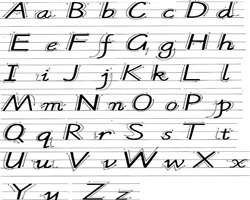现在完成时The Present Perfect Tense
一、结构:
1.肯定句: 主+have/has + done
2.否定句: 主+have/has + not + done
3.疑问句: —Have/has + 主 + done?
—Yes, 主+have/has.
—No, 主+have/hasn't.
助动词have和has可前面的主语缩略为've, 's.如 they've, we've, he's, it's;
has not=hasn't have not=haven't
二、过去分词的构成
1. +ed work, plant,call
2.e+d live, change, like, love, agree, save, hate, move, arrive,,skate, hope, use
3.以重读闭音节结尾,末尾只有一个辅音字母的 双写+ed.
如:plan, stop, drop, fit(适合), prefer(更喜欢), travel
4。以辅音字母+y,结尾,变y为i+ed: try, study, carry, hurry, cry, worry, copy
三、用法:
1.表示过去发生的某一动作对现在造成的影响或结果。
常与以下词连用,already, yet, just, now, 例如:
I have just cleaned my clothes. 我刚洗过衣服。
(“洗衣服”是发生在过去的动作,对现在造成的结果是“衣服干净了”)
already (“已经”,用在肯定句)
I have already finished my homework.
yet(“已经”,用在疑问句;“还”用在否定句)
Has he finished his homework yet?
She hasn't finished her homework yet.
just (“刚刚”,用在肯定句)
We have just finished our homework.
now (现在) I have had my breakfast now.
2. 表示说话前发生过一次或多次,而现在已成为经历或经验的动作或状态,常与以下词连用。
ever (“曾经”,用在疑问句中) Have you ever been to Hong Kong?
never (“从未” 表示否定) I've never been there.
before (以前) He has seen her before.
once (“曾经”“一次,用在肯定句) twice, three times…
She has been there once.
3.表示动作从过去已经开始,持续到现在的动作或状态,往往和表示一段的时间状语连用。
如for引导的时间段,since引导的过去时间点和含有过去时的从句,动词用持续性动词。
have/has+过分(延续性动词) + for+一段时间,
+since+一段时间+ago
+since+时间点
We have learned English for five years.
We have learned English since five years ago.
I have been here since 5 o'clock.
现在完成时+ since+一般过去时
即:have/has+过分(延续性v)since从句(一般过去时)
I have been here since I was young.
He has lived here since he came here.
短暂性动词与延续性动词
短暂性动词也叫瞬间动词或终止性动词。这种动词是指它们动作的开始也就意味着动作的结束,所以不能跟表示一段的时间状语连用,象这样的词有:buy, sell, begin, start, leave, come, go, borrow, lend, return, die, join等。
延续性动词也叫持续性动词,能和一段时间连用。
1.短暂性动词和延续性动词都可用于现在完成时中
have/has+过分(短暂性v) (肯定句, 疑问句中,不能加一段时间)
have/has not+过分(短暂性v) (否定句,能加一段时间)
即:have/has not +过分(短暂性动词) +for+一段时间,
+since+时间点
+ since+一段时间,+ago
have / has +过分(延续性动词)(可加一段时间),例如:
She has died.(短暂性v,肯定句,不能加一段时间)
She has been dead (for 5 years.)(延续性动词)
2.短暂性动词不能用于由for+一段时间, since+时间点(或since…ago)引导的现在完成时的肯定句,疑问句中,此句型必须用延续性动词,即
have/ has+ 过分 (延续性动词) + for+一段时间,
(短暂性动词必须 +since+一段时间+ago
转换成延续性动词) +since+时间点
have/has+过分(延续性动词) +since从句(一般过去时)
3.短暂性动词与时间段的关系
短暂性动词在肯定句、疑问句中不能与时间段连用,这些动词是:become, begin, buy, borrow, arrive, come, die, fall, finish, get to know, go, join, leave, marry等。为了表述这种意思,可用以下几种表示法:
(1) It is +一段时间+since从句(一般过去时 ) (短暂性动词)
(2) 一般过去时 (短暂性动词) + 一段时间+ago
还可用相应的延续性动词have,keep等或短语“be+名词(形容词、位置副词、介词短语)”来代替短暂性动词,由since和for引导, (短暂性动词必须转换成延续性动词)
(3) have/has+过分(延续性动词) + for+一段时间,
(4)have/has+过分(延续性动词)+since+一段时间+ago
have/has+过分(延续性动词) +since+时间点
have/has+过分(延续性动词) + since从句(一般过去时) (短暂性动词)
(5) 一段时间+现在完成时+ since从句(一般过去时) (短暂性动词)
Two weeks has passed sine he left Shanghai .
★ 上面5句可相互替换:
他离开学校已经20年了.
1、It is 20 years since he left the school.
2、He left the school 20 years ago.
3、He has been away from the school for 20 years.
4、He has been away from the school since 20 years ago.
5、20 years has passed since he left the school.
这类常见的动词有:
瞬间性 持续性
come /go 来/去 ——be in /at
leave 离开 —— be away (from)
arrive 到达 —— be in/ at /here
sth. begin /start开始 ——be on
finish 结束 —— be over
die 死 —— be dead
join 参加 ——be in +组织
——be a+成员
marry结婚 —— be married
fall asleep/ ill /sick 睡着/病倒 —— be asleep/ ill/sick
become 成为 —— be a
borrow 借 —— keep
buy 买 —— have
catch (a cold) 感冒 —— have (a cold)
Sb. begin/ start to do sth. 开始做 —— do sth.
【 区 别 】
一、现在完成时与一般过去时的用法比较
现在完成时表示过去的动作一直延续到现在甚至会继续下去或表示过去的动作对现在造成的影响,强调的是现在的情况,因此不能和表示确定的时间状语连用;
一般过去时表示动作发生的时间在过去,强调的是过去的动作或状态,和现在无关,可以和确定的过去时间状语连用.
用于现在完成时的时间状语
never, ever, already, yet, just, lately, recently,for…, since …, since+一段时间+ago,
in the past (或last) few years (过去几年来) even since then (打那以后),
before+时间点, these days(这些天),so far= up to now, till now, by now (到目前为止),
用于一般过去时的时间状语
yesterday, (yesterday morning…) last night (last…),一段时间+ago ,in the past,
just now=a moment ago,in +具体年份(in 2002), from then on (=after that 打那以后), 试比较:
The plane has arrived . 飞机已经来了。(说明现在的情况:飞机在这儿)
The plane arrived a quarter ago. 飞机是一刻中以前来的.(强调动作发生的时间在过去)
I have taught here for fifteen years. 我在这儿已经教了十五年.
(表示十五年前的动作一直延续到现在,还可能会继续.)
I taught here for a year. 我过去在这儿教过一年.(表示“我“现在已经不在这儿任教了)
二、have been to/ in 与have gone 的用法比较
1.have been in+ 地点名词 +for+一段时间
+since+一段时间 +ago
或“have been + 位置副词 +for+一段时间
+since+一段时间 +ago
意思是“在某地呆过(多久)”,
Mr. Green has been in China for many years. 格林先生在中国呆过好多年。
I have been here since I began to work. 我工作以来一直呆在这儿。
2.“have been to +地点名词”
“have been+ 位置副词”意思是“曾经到过某地(多少次)( 人已经回来)”。 如:
Miss Brown has been to Japan twice. 布朗小姐到日本去过两次。
Have you ever been here before? 你以前到过这吗?
3.“have gone to +地点名词” 或 “have gone + 位置副词”
意思是“到某地去了(人不在此处)”,一般不用于第一、二人称,如:
“Where's Tom?”
“He's gone to the cinema.”
“Has Mary gone there with him?”
“No, she hasn't.”
“汤母在哪儿?” “他去看电影了。”
“玛丽跟他去了吗?” “没有。”
三,现在完成时的时间状语
since与for
since短语或从句表示过去的动作延续至今,since+时间点。
现在完成时(延续性动词)+since+一般过去时(短暂性动词)
现在完成时+since+过去的时间点
现在完成时+since+一段时间+ago
She has worked here since 1980.
… since two years ago.
… since she came to ....
for短语表示动作延续多长时间,
现在完成时(延续性动词)+for+时间段。
since+一段时间+ago=for+时间段;
We have known each other for twenty years. 我们认识有二十年了。
I haven't seen her for a long time. 我好久没有见到她了。
2. just, lately, recently是完成时的时间状语,
just now 有a moment ago 之意,是一般
过去时的时间状语。如:
The train has just arrived. 火车刚到。
Did you see Joan just now? 你刚才看到琼了吗?
Have you heard from your family lately/recently? 你最近收到家人的来信了吗?
3. in the past few years 意思是“过去几年来”,可作现在完成时的时间状语;
in the past意思是“在过去”,常作一般过去时的时间状语。 如:
过去几年来,我的家乡发生了很大的变化。
Where did you work in the past? 你过去在哪里工作?
4. even since then与from then on (after that)都有“打那以后”之意,前者是完成时的时间状语,后者常用作一般过去时的时间状语,如:
She's lived here ever since then. 打那以后,她一直住在这。
I didn't hear of Jim from then on/after that. 打那以后,我就没有吉姆的消息。
5. before(+时间点)泛指“以前”时,可用于现在完成时中;
一段时间+ago 表示“现在的一段时间以前”,是一般过去时的时间状语。如:
I've never been to Japan before. 我以前没去过日本。
She went to Japan a year ago. 她一年前去了日本。
6. ever和never也是现在完成时常见的时间状语。前者意思是“曾经”,多见于疑问句或否定句中;后者意思是“从来没有”,表示全部否定。如:
“Have you ever seen the film?”
“No. I have never seen it.”
“你曾经看过这部影片吗?”
“没有, 从来没看过。”
Nobody in our class has ever been there. 我们班没有人去过那。
7. already和yet常见于现在完成时中,有“已经”之意。
前者一般用在肯定句中,后者用在疑问句中。yet在否定句中有“还”之意。 如:
“Has the bus left yet”?
“Yes. It has already left.”
(“No. It hasn't left yet.)
“汽车开走了吗?”
“是的,已经开走了.”(不,还没有开走.)
still, 表示过去已经开始了动作, 说话时仍未停止,与动词连用, 放在句中 (“仍然,还”)
eg: Does he still live here?
yet, 表示预料要发生的事尚未发生,位于句尾,有时接在not后, 一般用在疑问句(翻译成”已经”)和否定句(“还”,句末)中
eg: Has the school begun yet? He has not eaten yet.
already, 表示事情早已发生或提前发生, 一般放在句中, 强调时可用在句尾, 用于肯定句和疑问句中(用在疑问句中表怀疑,惊讶)
eg: The train has already left.
8. so far(到目前为止),
these days(这些天) 也是现在完成时常见的时间状语。如:
(1) So far, no man has traveled farther than the moon.
到目前为止, 还没有人到月球以外旅行.
(2) What have you done these days?
这些天来,你做了什么事?
【 练 习 】
练习1:翻译
1.我刚洗过衣服。
2.我到这里两年多了。
3.从1989年, 他就在这里工作。
4.你已经完成你的工作了吗?
5.过去,我从未听说过那件事。
6.你最近收到家人的来信了吗?
7.“你曾经看过这部影片吗?” “没有, 从来没看过。”
8.我去了图书馆.(已回来)
9. 凯特在哪里? 她和她父亲一起去北京了(未回)。
练习2:翻译下列句子: for+一段时间=since+一段时间+ago
1.他参军两年了。(join the army) (造4句)
2.我借他的书已经三星期了。(造4个句子)
3.他已经死了3年了。(造4句)
4.火车已经到达2小时了。(造4句)
5.我买了这块手表5年了。
6.他已经回来三天了。
7.自从六点钟他就来这儿了。
8.我离开家乡已十年了。
练习3:用正确的时态填空
1.I ____________ Beijing before. (visit)
2.He _____ already _______ there. (leave)
3.she _______just _______ the book. (see)
4. They ______never ________ it. ( play)
5._____ you ever ________ here? (study)
6. How long _____ they _______ there ? (work)
7. The boy _____ never _____ there ? (be)
8. He __________ to the town . (go)
9. _____ they _____ (live) in this city ?
10.We __________ (learn) English for three years/ since two years ago/since 2000.
11.Mr. Green _________ (be) in China these years.
12.They __________(write) 15 songs so far.
13.The population _________ (grow) more slowly in the past ten years.
14..Wu Dong ________(be) a soldier for one year.
15. The students _____________(study) in the middle school since last month.
16. How long ______ you ______(know) him?
17. Mike __________ (make) quite a few friends since he came to China.
18. I __________(give) my friend a nice book recently.
19. Li Ping Wu Dong __________(see) the old man three times.
20. _____ she ever ______(teach) you English?
21. These children ____________ (stay) in the park for two hours.
练习4:Fill in the blanks with already or yet.
1.“Where is Kate?” “She's _______left”
2.It's nearly 10 o'clock. Has Anne woken up ___?
3.They haven't finished dinner _____.
4.She has gone ______.
5.I haven't worn my new coat____.
6.---Could you do the washing up? ---I have ______ done it.
练习5:Fill in the blanks with for or since:
1.Mr Brown's daughter has collected stamps______ quite a few (许多)years.
2. Has Mike ever been to the museum in London ____ he got to Engl?
3. Her husbhas never been ill ____ he left the hospital last year.
4. I have been away from my home town ___ about five years.
5. They have learned English _____ 1998.
He has lived in Nanjing ______ the year before last.(前年)
7. I've known him ______ we were children.
8. Our teacher has studied Japanese ______ three years.
9. She has been away from the city _______ about ten years.
10. It's about ten years ______ she left the city.
练习6:用have/has gone to…, have/has been in…, have/has been to…填空
1.A: Where's Jim, Li Lei?
B: He ______________he school library.
2.The Greens _____________China for three years.
3.We _____________the Great Wall twice. It's very beautiful.
4.Mike his parents ___________ the north for half a year.
5.Mum is not at home now. she __________ the shop.
6.______ you ever _____ to Kunming ? Never.
7.Where _____ you ______ these days?
Yes, he __________ here for several days.
8.Where is Peter? I don't know where he ________?
9.Hi Jim! Where ____ you ______ ? Li Lei is looking for you.
练习7:同义句改写
1. I bought the calculator a week ago .
I ________ _______ the calculator for a week .
2. Tom joined the Young Pioneer last month .
Tom _______ _______ a Young Pioneer for a month.
3. It's 10 o'clock now .The meeting began at 8:30.
The meeting _______ ________ for one hour a half.
4. Mr. Li left just now .
Mr. Li ________ just ________ .
5. I came here in 2000.
I ______ _______ here______ 2000.
6. The cat died three days ago .
The cat ______ _______ ______ for three days .
7. He borrowed the book last Friday.
He ______ ______ the book for several days .
8. Ken closed the window because of the heavy rain.
Ken _______ _________ the window _______ it began to rain.
练习8:选择题
1. ---Hello, this is Lily speaking. Could I speak to Mr Black ?
---Sorry. He ________ the Xihu Lake Park.
A. has been to B. went to C. has gone to D. will go to (17南京)
2. Henry speaks Chinese very well. He _____in China since 2002. (17河北省)
A. stays B. stayed C. is staying D. has stayed
3. Nancy _______ lots of charity work in her free time since she entered college.(17上海)
A. has done B. will do C. was doing D. is doing
4. ---Why not see the film Harry Porter with me?
---I _______ it.(17辽宁)
A. have seen B. see C. was seeing D. saw
5. ---Tony, _______ you _______ smoking?(17河南)
---Yes. Drinking tea is my favourite now.
A. will, stop B. did, stop C. would, stop D. have, stopped
6. ---Doctor, I caught a bad cold, I had a sore throat.
---How long _______ like this? (17厦门)
A. did you B. were you C. have you been
7. My aunt isn't here. She _______ Shanghai on business. She will be back in three days.(17重庆)
A. went B. has gone to C. has been to D. will go to
8. I _______ to Canada twice. It's so beautiful.(16重庆)
A. won't go B. have gone C. don't go D . have been
9. Hurry up! The film _______ for ten minutes.(16辽宁)
A. has been on B. began C. had begun D. has begun
10. It _______ten years since we last_____ in Beijing.
A. was, met B. has been, met C. was, meet D. is , meet
【 答 案 】
练习1:
1.I have just cleaned my clothes.
2.I have been here for two years.
3.He has worked here since 1989.
4.Have you finished your work yet?
5.I have never heard that before.
6.Have you heard from your family lately/recently?
7.“Have you ever seen the film?”
“No. I have never seen it.”
8.I have been to the library.
9.Where is Kate? She has gone to Beijing with her father.
练习2:
1.It is 2 years since he joined the army.
He joined the army 2 years ago.
He has been in the army for 2 years. (=since 2 years ago.)
He has been a soldier for 2 years (=since 2 years ago.)
2.It is 3 weeks since I borrowed his book.
I borrowed his book 3 weeks ago.
I have kept his book for 3 weeks. (=since 3 weeks ago.)
3.It is 3years since he died.
He died 3 years ago.
He has been dead for 3 years. (=since 3 years ago.)
4.It is 2 hours since the train arrived.
The train arrived 2 hours ago.
The train has been here for 2 hours. (= since 2 hours ago.)
5.I have had this watch for five years.
…since 5 years ago.
It is 5 years since I bought this watch.
I bought this watch 5 years ago.
6.He has been back for 3 days
…since 3 days ago.
It is 3 days since he came back.
He came back 3 days ago.
7.He has been here since 6 o'clock.
8.I have been away from my hometown for 10 years.
I have been away from my hometown since 10 years ago.
It is 10 years since I left my hometown.
I left my hometown 10 years ago.
练习3:
1.have visited 2. has left 3. has seen 4. have played 5. Have studied
6. have worked 7. has been 8. has gone 9. Have lived 10. have learned
11. has been 12. have written 13. has grown 14. has been 15. have studied
16. have known 17. have made 18. have given 19. have seen 20. Has taught
21. have stayed
练习4:
1. already 2. yet 3. yet 4. already 5. yet 6. already
练习5:
1.for 2.since 3.since 4.for 5.since
6.since 7.since 8.for 9.for 10.since
练习 6:
1.has gone to 2.have been in 3.have been to 4.have been in
5.has gone to 6.Have been 7.have been,has been
8.has gone 9.have been
练习7:
1.have had 2.has been 3. has lasted 4. has gone 5. have been ,since
6.has been dead 7.has kept 8.has closed, since
练习8: 1-5 CDAAD 6-10 CBDAB
【现在完成时必背基础知识】
1.基本结构:主语+have/has+动词的过去分词(done),可以简记为:
have(has)在前面,
过去分词在后边,
以前(before) 从来不(never) 出现,
最近(recently) 曾经(ever) 一(once) 两遍(twice),
自从(since) 刚刚(just) for一段,今天(today) 已经(already/yet) 很明显。
①肯定句:主语+have/has+ done +宾语(或者其他)
②否定句:主语+have not/has not+ done +宾语
③一般疑问句:Have/Has+主语+ done +宾语(或者其他)
肯定回答:Yes, I have.或Yes, she/he/人名 has.
否定回答:No, I haven't.或No,she/he/人名 hasn't.
④特殊疑问句:特殊疑问词+一般疑问句(have/has+主语+ done +其他)
⑤被动语态:
现在完成时的被动语态的肯定式为:have/ has +been +done。如:
The experiment has been done successfully. 这个实验做得很成功。
现在完成时的被动语态的否定式为:have/ has +not +been +done。如:
John's novel has not been published. 约翰的小说还没有被出版。
现在完成时的被动语态的一般疑问句需将have /has提到主语的前面。如:
Has his car been repaired? 他的车修好了吗?
现在完成时的被动语态的特殊疑问句为:疑问词+have /has +been +done? 如:
Who has been invited? 谁受到了邀请?
2. since +(1)(过去的)月份/年份
since +(2) 一段时间+ago
since +(3)一般过去时从句
短暂性动词与时间段的关系
(1) It is +时间段+since从句(一般过去时 ) (短v)
(2) 一般过去时 (短v) +时间段+ago
(3) have/has+过分(延v) + for+时间段,
(4) have/has+过分(延v)+since+时间段+ago
(5) 时间段+现在完成时+ since从句(一般过去时) (短v)
have been in/at、have been to和have gone to区别
1. have been to, 表示“曾经去过某地(已回来)”
I have been to England.我曾经去过英格兰(已经回来了)
2. have been in/at, 表示“已经……(持续的);已经在...”。in 大;at 小。不但表示在什么地方, 也有在什么状态的意思.
I have been in France. 我曾经去过法国
Lately I have been in need of money. 我最近缺钱用.
3. have gone to, 表示“已经去某地(还未回来)”
They have gone to Beijing.他们已经去北京了.(还未回来)





 。
。